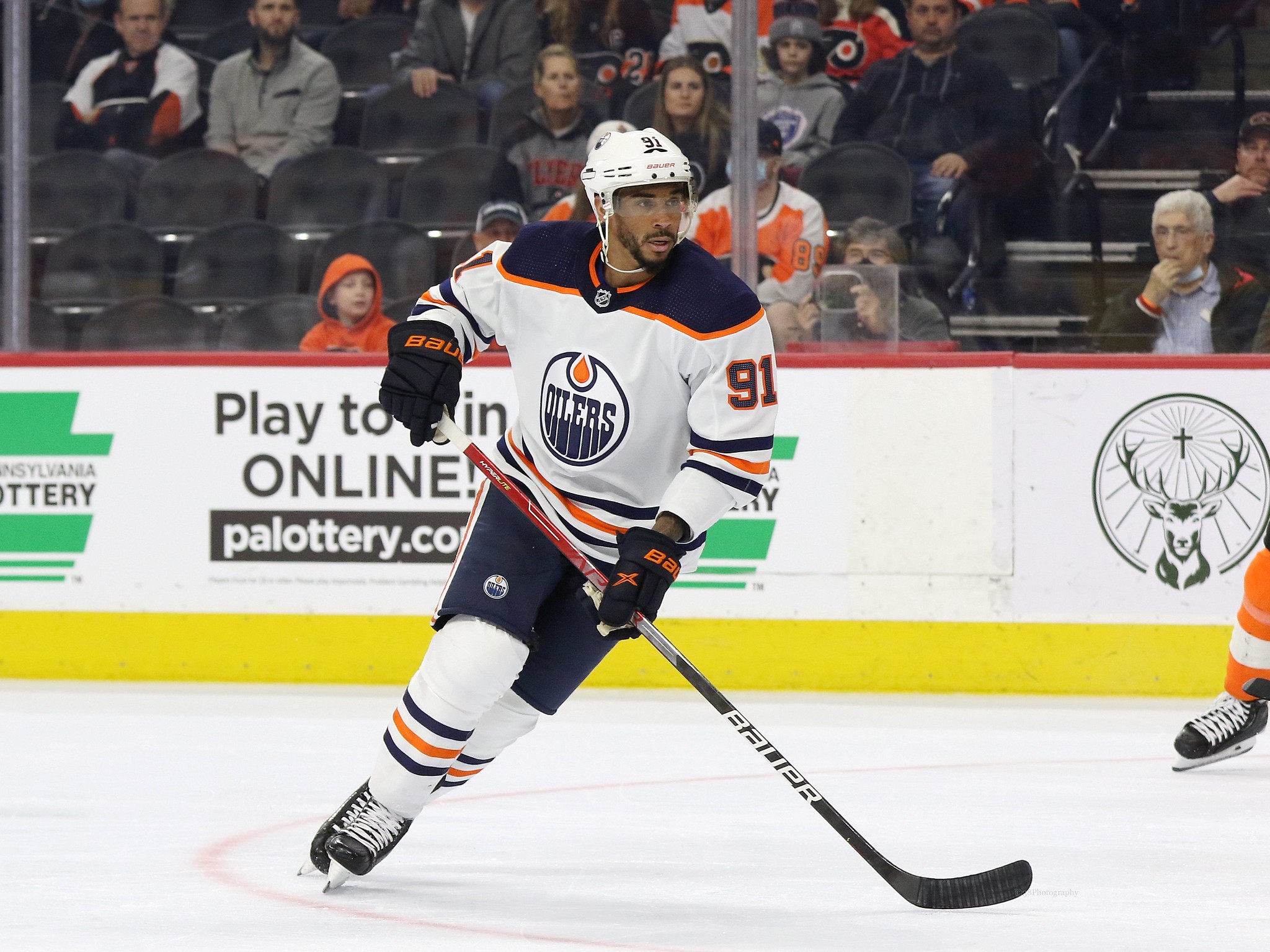

The hockey world was surprised today with the news that the Edmonton Oilers have traded Evander Kane to the Vancouver Canucks in exchange for a 2025 fourth-round pick. Kane himself broke the news on X, expressing gratitude to the Oilers organization and fanbase. While Kane is heading to his hometown, the trade has left many wondering about the rationale behind the move for both teams.
From Edmonton's perspective, this trade appears to be a clear win. The primary motivation is shedding Kane's $5.125 million cap hit, a significant amount of financial flexibility for a team looking to contend for the Stanley Cup. The Oilers had been utilizing Long-Term Injured Reserve (LTIR) to manage Kane’s cap hit for much of the 2024-2025 season, but this trade completely removes the burden of his contract. This newfound cap space is crucial as they navigate negotiations for a contract extension with Connor McDavid and aim to build a competitive roster around him.
Kane, 33, is entering the final year of a four-year, $20.5 million contract. In 2023-24, he recorded 24 goals and 44 points in 77 games. He then added 6 goals and 12 points in 21 playoff games during the Oilers' recent run to the Stanley Cup Final. Prior to the trade, the Oilers had approximately $11.96 million in cap space with 19 players under contract. Clearing Kane's salary provides them with significantly more room to maneuver in free agency and potentially address other needs on their roster, such as goaltending.
The Canucks' side of the trade is far more perplexing. While acquiring a player with Kane's offensive capabilities might seem appealing on the surface, the move raises questions about team culture and overall strategy. Vancouver had previously emphasized improving their locker room environment, particularly in light of the J.T. Miller situation. Bringing in Kane, who has a history of off-ice issues and potential character concerns, seems to contradict this objective.
What exactly do the Canucks gain? They absorb Kane's full contract, providing the Oilers with much-needed cap relief, while only receiving a fourth-round pick in return. It’s speculated that perhaps Kane wanted to play in Vancouver. He is a Vancouver native after all and played his junior hockey there. Kane stated that he is incredibly excited for this next chapter of his career, since he grew up watching the team. This might be an attempt to add grit and scoring depth to their forward group, but the potential risks associated with Kane's presence could outweigh the benefits. Furthermore, assisting a division rival like Edmonton seems counterproductive to Vancouver's own aspirations of improving their standing in the Pacific Division.
Ultimately, the Oilers-Canucks trade appears heavily lopsided in favor of Edmonton. The Oilers gain significant cap space to bolster their roster and secure their superstar player, while the Canucks take on a potentially problematic player with a hefty contract for a minimal return. Only time will tell if Kane can revitalize his career in his hometown and contribute positively to the Canucks, but as of now, this trade appears to be a strategic gamble with considerable risk.